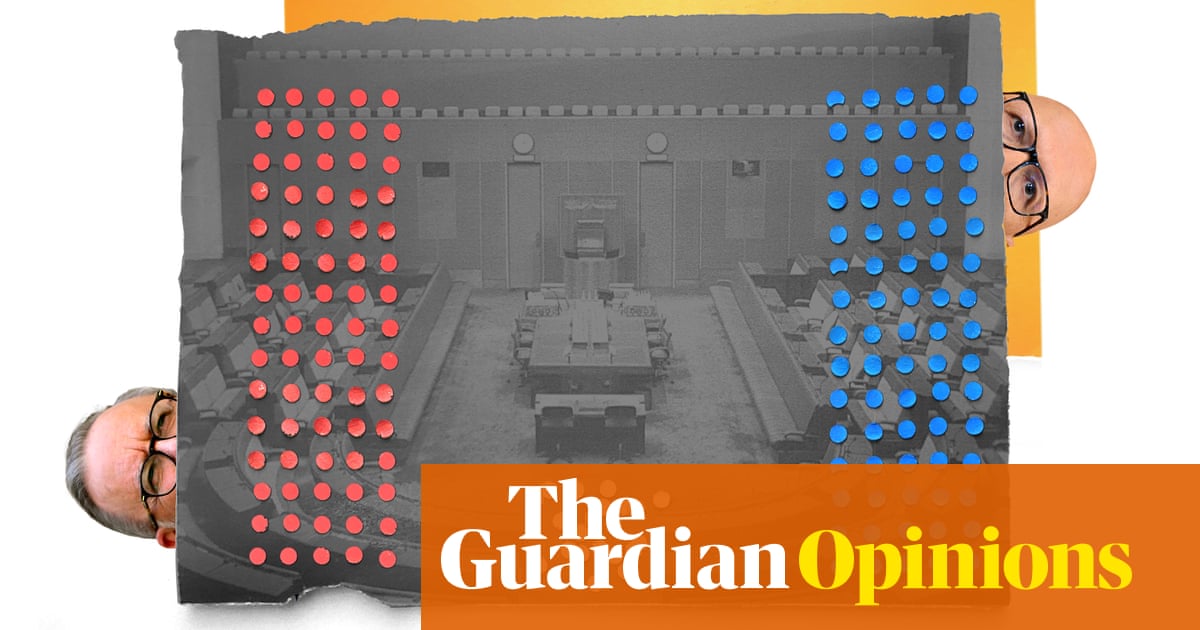Predicting election results is a game for pollsters or mugs, particularly in a contest where complicated preference flows will determine the winner in many electorates. But published polls suggest a minority government is possible after 3 May.
The prime minister flatly refuses to contemplate the prospect.Anthony Albanesesays he’s aiming for a majority, and when asked directly whether he would negotiate with Greens or minor parties to form government he gives a sharp one-word reply: “No.”
But that’s an artful answer, because he knows he wouldn’t need a formal agreement to form government if Labor were to fall slightly short of 76 seats, and also that many of those likely to be sitting on that crossbench wouldn’t want such an agreement with him.
If neither major party achieves a majority, then one of them, probably the one with the most seats, would only need sufficient undertakings from the crossbench to tell the governor general they had the votes to survive a no-confidence motion and pass appropriation bills.
Sign up for the Afternoon Update: Election 2025 email newsletter
After forming government, as has happened in the Senate for decades, they’d have to negotiate to get each of their proposed laws through.Tory Shepherd spoke to experts (and political veterans)about that process.
It would no doubt be deeply aggravating for the governing party. Sharing power doesn’t exactly come naturally.
But aswe discussed on this week’s Friday edition of the Full Story podcast, the fact that about a third of the electorate are now giving their first preference to a party other than the majors suggest voters want them to be challenged. They want things to change.
And progressive-minded voters might actually get more of what they want from the next parliament from a Labor government needing to work with Greens, teals or other centre-left independents.
Each of the hopeful crossbench candidates and parties has its own priorities and causes,as Sarah Basford Canales has documented. But a progressive crossbench would likely press for things like tougher climate action, better environmental laws and protections, a raise in jobseeker allowance (surely a policy that could ease the sharpest cost-of-living pain, but something neither major party has gone near in this campaign), more action on the causes of the housing crisis and an expansion of Medicare.
That’s why conservative activist groups are campaigning so aggressively against them.
Sign up toAfternoon Update: Election 2025
Our Australian afternoon update breaks down the key election campaign stories of the day, telling you what’s happening and why it matters
after newsletter promotion
Advance Australia claims to have more than $7m for its campaign to “smash” the Greens and,as Ariel Bogle has reported, is also providing materials to scores of other groups to disseminate its claim that the Greens are “extreme” and “not who they used to be”.Better Australia is also targeting teals and Greens, claiming that minority governments are “unstable” and that “past minority governments have seen stalled reforms, frequent leadership changes, and uncertainty that paralysed effective governance”.
Facts say the opposite. Australia’s last minority government, the Gillard government, managed to legislate a carbon price, the national disability insurance scheme, more education funding after the Gonski review and much more. Whendata editor Nick Evershed did the sums in 2013, it had passed more legislation than any previous government.
And while it sure was an unstable period in Labor politics, that was hardly the fault of the crossbench. If anything, the fact that Labor was governing in minority may have acted as a brake on its internal undermining. That legislative record suggests it also sharpened Labor’s ability to stare down vested interests.
Voters will judge all this next Saturday. But history suggests a minority Labor government would not be the calamity the scare campaigns claim. For some of the priorities of progressive voters, it could be a good thing.
